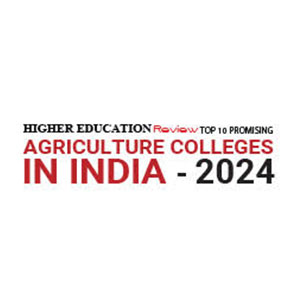
Swami Vivekananda University: Cultivating Excellence In Agricultural Research & Education
By Dr. Nandan Gupta, Chancellor
Agriculture universities should aim to deliver a world-class educational experiencve to foster intellectual growth, innovation, and leadership. This vision equips students with cutting-edge knowledge and skills, driving advancements in agricultural practices. By nurturing innovative thinkers and leaders, these institutions can address global challenges, enhance food security, and promote sustainable development. Such a commitment ensures graduates are well-prepared to make significant contributions to the agricultural sector and society at large. Swami Vivekananda University embodies this vision, delivering an exceptional educational experience that fosters intellectual growth, innovation, and leadership.
Swami Vivekananda University was established in 2020 during the peak of the COVID-19 pandemic. Despite global challenges, the founders saw an opportunity to create a university adaptable to the changing educational landscape. Initially, it began entirely online, offering courses through digital platforms. As pandemic restrictions eased, the university transitioned to offline modes, providing students with a traditional campus experience. In just three years, Swami Vivekananda University has grown to over 10,000 students and established 22 departments under 7 schools across disciplines such as Agriculture, Computer Science, Engineering, Management, Allied Health Services, Humanities and Social Sciences and Life Sciences.
Enhancing Agriculture Education in India
Swami Vivekananda University has made significant strides in the field of agricultural education. The Department of Agriculture, established in the same year as the university, has already pass out its first batch of students graduate in 2024. With an initial intake of 120 students, the department boasts a 100% placement rate. The university follows the ICAR syllabus, ensuring that the curriculum aligns with national standards. It also offers short courses and hands-on training in modern agricultural techniques such as bio-floc, hydroponics, cold chain, and drone technology. These practical courses are designed to enhance students' skills and make them industry-ready.
Swami Vivekananda University offers unique agriculture courses that help students build successful professional careers. The School of Agriculture includes a B.Sc. in Agricultural Science and a B.Tech. in Agricultural Engineering. In 2024, the university expanded its offerings to include M.Sc. programs in Agronomy and Soil Science. The emphasis on practical training is a distinctive feature of these courses. The university's extensive facilities, including a rooftop polyhouse for soilless culture and a 30-acre farm, provide students with ample opportunities to apply their knowledge in real-world settings. The university's commitment to modern agricultural techniques ensures that students are well-versed in the latest advancements in the field.
Swami Vivekananda University is actively working to create awareness & encourage enrollment in its agriculture courses
Despite the increasing importance of agriculture, many students and parents are unaware of the opportunities available in this field. Swami Vivekananda University is actively working to create awareness and encourage enrollment in its agriculture courses. The university highlights the success of its graduates, such as the 100% placement rate and the highest package for freshers in 2024. The university also engages in extensive publicity efforts, including outreach programs, seminars, and conferences. These initiatives help dispel myths about agriculture and showcase the vibrant career opportunities available in this field.
Hands-On Expertise and Training
Swami Vivekananda University places a strong emphasis on hands-on expertise and training. “Our university offers short courses and practical training sessions that cover essential skills like bio-chemical preparation, organic formulation, and modern farming techniques. These courses are designed in consultation with industry experts to ensure that they meet the needs of employers. Our university's facilities, including a central library, canteen, food court, open gym, and various sports and recreational amenities, provide a supportive environment for students. The library, in particular, offers a unique service by providing our students with all the necessary books for an entire semester, ensuring that they have the resources they need to succeed,” says Dr. Tanmoy Sarkar, HoD – Agriculture, Swami Vivekananda University.
Swami Vivekananda University offers robust placement assistance to its students. The university's placement cell works closely with various companies to ensure that students have multiple job offers upon graduation. The university also maintains a strong alumni network, providing ongoing support to graduates even after they enter the workforce. The university's commitment to industry collaboration is evident in its partnerships with various companies and organizations. These collaborations help ensure that the curriculum is aligned with industry needs and that students have ample opportunities for internships and practical training.
Looking ahead, Swami Vivekananda University has ambitious plans for growth and expansion. Under the leadership of Chancellor Dr. Nandan Gupta, the university aims to achieve national and international recognition. The university plans to expand its campus, increase its research collaborations, and enhance its facilities to provide a world-class education to its students. In the field of agriculture, the university aims to integrate cutting-edge technologies like robotics and artificial intelligence into its curriculum. The goal is to ensure that students are equipped with the skills and knowledge they need to excel in the rapidly evolving field of agriculture.
In conclusion, Swami Vivekananda University is committed to fostering innovation, excellence, and social responsibility. With its strong focus on practical training, industry collaboration, and student success, the university is poised to become a leading institution in the field of agriculture and beyond.


